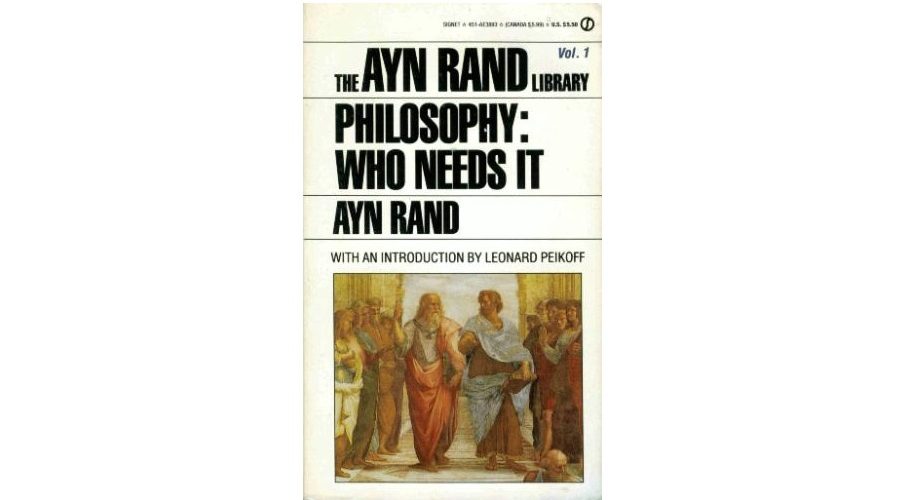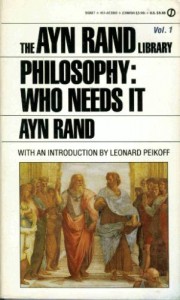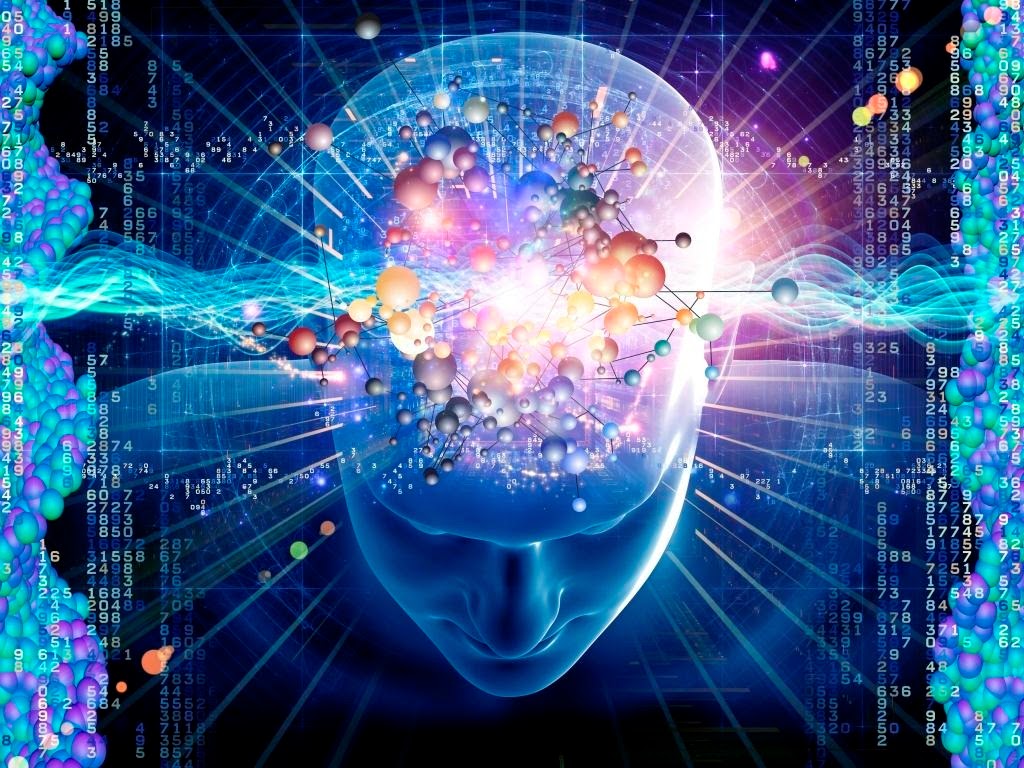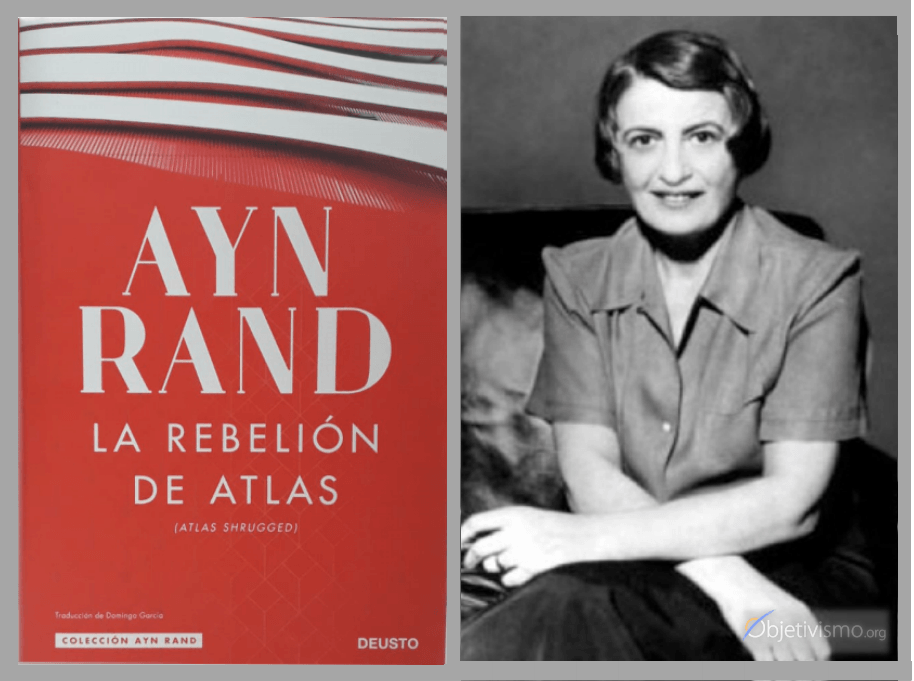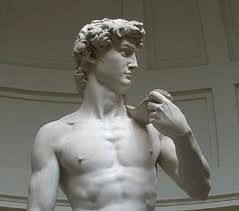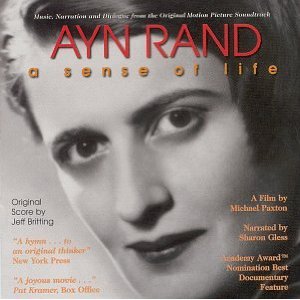by Ayn Rand
Address To The Graduating Class Of The United States Military Academy at West Point, New York — March 6, 1974
…
Since I am a fiction writer, let us start with a short short story. Suppose that you are an astronaut whose spaceship gets out of control and crashes on an unknown planet. When you regain consciousness and find that you are not hurt badly, the first three questions in or mind would be: Where am I? How can I discover it? What should I do?
You see unfamiliar vegetation outside, and there is air to breathe; the sunlight seems paler than you remember it, and colder. You turn to look at the sky, but stop. You are struck by a sudden feeling: if you don’t look, you won’t have to know that you are, perhaps, too far from the earth and no return is possible; so long as you don’t know it, you are free to believe what you wish — and you experience a foggy, pleasant, but somehow guilty, kind of hope.
You turn to your instruments: they may be damaged, you don’t know how seriously. But you stop, struck by a sudden fear: how can you trust these instruments? How can you be sure that they won’t mislead you? How can you know whether they will work in a different world? You turn away from the instruments.
Now you begin to wonder why you have no desire to do anything. It seems so much safer just to wait for something to turn up somehow; it is better, you tell yourself, not to rock the spaceship. Far in the distance, you see some sort of living creatures approaching; you don’t know whether they are human, but they walk on two feet. They, you decide, will tell you what to do.
You are never heard from again.
This is fantasy, you say? You would not act like that and no astronaut ever would? Perhaps not. But this is the way most men live their lives, here, on earth.
Most men spend their days struggling to evade three questions, the answers to which underlie man’s every thought, feeling and action, whether he is consciously aware of it or not: Where am I? How do I know it? What should I do?
By the time they are old enough to understand these questions, men believe that they know the answers. Where am I? Say, in New York City. How do I know it? It’s self-evident. What should I do? Here, they are not too sure — but the usual answer is: whatever everybody does. The only trouble seems to be that they are not very active, not very confident, not very happy — and they experience, at times, a causeless fear and an undefined guilt, which they cannot explain or get rid of.
They have never discovered the fact that the trouble comes from the three unanswered questions — and that there is only one science that can answer them: philosophy.
Philosophy studies the fundamental nature of existence, of man, and of man’s relationship to existence. As against the special sciences, which deal only with particular aspects, philosophy deals with those aspects of the universe which pertain to everything that exists. In the realm of cognition, the special sciences are the trees, but philosophy is the soil which makes the forest possible.
Philosophy would not tell you, for instance, whether you are in New York City or in Zanzibar (though it would give you the means to find out). But here is what it would tell you: Are you in a universe which is ruled by natural laws and, therefore, is stable, firm, absolute — and knowable? Or are you in an incomprehensible chaos, a realm of inexplicable miracles, an unpredictable, unknowable flux, which your mind is impotent to grasp? Are the things you see around you real — or are they only an illusion? Do they exist independent of any observer — or are they created by the observer? Are they the object or the subject of man’s consciousness? Are they what they are — or can they be changed by a mere act of your consciousness, such as a wish?
The nature of your actions — and of your ambition — will be different, according to which set of answers you come to accept. These answers are the province of metaphysics — the study of existence as such or, in Aristotle’s words, of “being qua being” — the basic branch of philosophy.
No matter what conclusions you reach, you will be confronted by the necessity to answer another, corollary question: How do I know it? Since man is not omniscient or infallible, you have to discover what you can claim as knowledge and how to prove the validity of your conclusions. Does man acquire knowledge by a process of reason — or by sudden revelation from a supernatural power? Is reason a faculty that identifies and integrates the material provided by man’s senses — or is it fed by innate ideas, implanted in man’s mind before he was born? Is reason competent to perceive reality — or does man possess some other cognitive faculty which is superior to reason? Can man achieve certainty — or is he doomed to perpetual doubt?
The extent of your self-confidence — and of your success — will be different, according to which set of answers you accept. These answers are the province of epistemology, the theory of knowledge, which studies man’s means of cognition.
These two branches are the theoretical foundation of philosophy. The third branch — ethics — may be regarded as its technology. Ethics does not apply to everything that exists, only to man, but it applies to every aspect of man’s life: his character, his actions, his values, his relationship to all of existence. Ethics, or morality, defines a code of values to guide man’s choices and actions — the choices and actions that determine the course of his life.
Just as the astronaut in my story did not know what he should do, because he refused to know where he was and how to discover it, so you cannot know what you should do until you know the nature of the universe you deal with, the nature of your means of cognition — and your own nature. Before you come to ethics, you must answer the questions posed by metaphysics and epistemology: Is man a rational being, able to deal with reality — or is he a helplessly blind misfit, a chip buffeted by the universal flux? Are achievement and enjoyment possible to man on earth — or is he doomed to failure and distaste? Depending on the answers, you can proceed to consider the questions posed by ethics: What is good or evil for man — and why? Should man’s primary concern be a quest for joy — or an escape from suffering? Should man hold self-fulfillment — or self-destruction — as the goal of his life? Should man pursue his values — or should he place the interests of others above his own? Should man seek happiness — or self-sacrifice?
I do not have to point out the different consequences of these two sets of answers. You can see them everywhere — within you and around you.
The answers given by ethics determine how man should treat other men, and this determines the fourth branch of philosophy: politics, which defines the principles of a proper social system. As an example of philosophy’s function, political philosophy will not tell you how much rationed gas you should be given and on which day of the week — it will tell you whether the government has the right to impose any rationing on anything.
The fifth and last branch of philosophy is esthetics, the study of art, which is based on metaphysics, epistemology and ethics. Art deals with the needs — the refueling — of man’s consciousness.
Now some of you might say, as many people do: “Aw, I never think in such abstract terms — I want to deal with concrete, particular, real-life problems — what do I need philosophy for?” My answer is: In order to be able to deal with concrete, particular, real-life problems — i.e., in order to be able to live on earth.
You might claim — as most people do — that you have never been influenced by philosophy. I will ask you to check that claim. Have you ever thought or said the following? “Don’t be so sure — nobody can be certain of anything.” You got that notion from David Hume (and many, many others), even though you might never have heard of him. Or: “This may be good in theory, but it doesn’t work in practice.” You got that from Plato. Or: “That was a rotten thing to do, but it’s only human, nobody is perfect in this world.” You got that from Augustine. Or: “It may be true for you, but it’s not true for me.” You got it from William James. Or: “I couldn’t help it! Nobody can help anything he does.” You got it from Hegel. Or: “I can’t prove it, but I feel that it’s true.” You got it from Kant. Or: “It’s logical, but logic has nothing to do with reality.” You got it from Kant. Or: “It’s evil, because it’s selfish.” You got it from Kant. Have you heard the modern activists say: “Act first, think afterward”? They got it from John Dewey.
Some people might answer: “Sure, I’ve said those things at different times, but I don’t have to believe that stuff all of the time. It may have been true yesterday, but it’s not true today.” They got it from Hegel. They might say: “Consistency is the hobgoblin of little minds.” They got it from a very little mind, Emerson. They might say: “But can’t one compromise and borrow different ideas from different philosophies according to the expediency of the moment?” They got it from Richard Nixon — who got it from William James.
Now ask yourself: if you are not interested in abstract ideas, why do you (and all men) feel compelled to use them? The fact is that abstract ideas are conceptual integrations which subsume an incalculable number of concretes — and that without abstract ideas you would not be able to deal with concrete, particular, real-life problems. You would be in the position of a newborn infant, to whom every object is a unique, unprecedented phenomenon. The difference between his mental state and yours lies in the number of conceptual integrations your mind has performed.
You have no choice about the necessity to integrate your observations, your experiences, your knowledge into abstract ideas, i.e., into principles. Your only choice is whether these principles are true or false, whether they represent your conscious, rational conviction — or a grab-bag of notions snatched at random, whose sources, validity, context and consequences you do not know, notions which, more often than not, you would drop like a hot potato if you knew.
But the principles you accept (consciously or subconsciously) may clash with or contradict one another; they, too, have to be integrated. What integrates them? Philosophy. A philosophic system is an integrated view of existence. As a human being, you have no choice about the fact that you need a philosophy. Your only choice is whether you define you philosophy by a conscious, rational, disciplined process of thought and scrupulously logical deliberation — or let your subconscious accumulate a junk heap of unwarranted conclusions, false generalizations, undefined contradictions, undigested slogans, unidentified wishes, doubts and fears, thrown together by chance, but integrated by your subconscious into a kind of mongrel philosophy and fused into a single, solid weight: self-doubt, like a ball and chain in the place where your mind’s wings should have grown.
You might say, as many people do, that it is not easy always to act on abstract principles. No, it is not easy. But how much harder is it, to have to act on them without knowing what they are?
Your subconscious is like a computer — more complex a computer than men can build — and its main function is the integration of your ideas. Who programs it? Your conscious mind. If you default, if you don’t reach any firm convictions, your subconscious is programmed by chance — and you deliver yourself into the power of ideas you do not know you have accepted. But one way or the other, your computer gives you print-outs, daily and hourly, in the form of emotions— which are lightning-like estimates of the things around you, calculated according to your values. If you programmed your computer by conscious thinking, you know the nature of your values and emotions. If you didn’t, you don’t.
Many people, particularly today, claim that man cannot live by logic alone, that there’s the emotional element of his nature to consider, and that they rely on the guidance of their emotions. Well, so did the astronaut in my story. The joke is on him — and on them: man’s values and emotions are determined by his fundamental view of life. The ultimate programmer of his subconscious is philosophy— the science which, according to the emotionalists, is impotent to affect or penetrate the murky mysteries of their feelings.
The quality of a computer’s output is determined by the quality of its input. If your subconscious is programmed by chance, its output will have a corresponding character. You have probably heard the computer operators’ eloquent term “gigo” — which means: “Garbage in, garbage out.” The same formula applies to the relationship between a man’s thinking and his emotions.
A man who is run by emotions is like a man who is run by a computer whose print-outs he cannot read. He does not know whether its programming is true or false, right or wrong, whether it’s set to lead him to success or destruction, whether it serves his goals or those of some evil, unknowable power. He is blind on two fronts: blind to the world around him and to his own inner world, unable to grasp reality or his own motives, and he is in chronic terror of both. Emotions are not tools of cognition. The men who are not interested in philosophy need it most urgently: they are most helplessly in its power.
The men who are not interested in philosophy absorb its principles from the cultural atmosphere around them — from schools, colleges, books, magazines, newspapers, movies, television, etc. Who sets the tone of a culture? A small handful of men: the philosophers. Others follow their lead, either by conviction or by default. For some two hundred years, under the influence of Immanuel Kant, the dominant trend of philosophy has been directed to a single goal: the destruction of man’s mind, of his confidence in the power of reason. Today, we are seeing the climax of that trend.
When men abandon reason, they find not only that their emotions cannot guide them, but that they can experience no emotions save one: terror. The spread of drug addiction among young people brought up on today’s intellectual fashions, demonstrates the unbearable inner state of men who are deprived of their means of cognition and who seek escape from reality — from the terror of their impotence to deal with existence. Observe these young people’s dread of independence and their frantic desire to “belong,” to attach themselves to some group, clique or gang. Most of them have never heard of philosophy, but they sense that they need some fundamental answers to questions they dare not ask — and they hope that the tribe will tell them how to live. They are ready to be taken over by any witch doctor, guru, or dictator. One of the most dangerous things a man can do is to surrender his moral autonomy to others: like the astronaut in my story, he does not know whether they are human, even though they walk on two feet.
Now you may ask: If philosophy can be that evil, why should one study it? Particularly, why should one study the philosophical theories which are blatantly false, make no sense, and bear no relation to real life?
My answer is: In self-protection — and in defense of truth, justice, freedom, and any value you ever held or may ever hold.
Not all philosophies are evil, though too many of them are, particularly in modern history. On the other hand, at the root of every civilized achievement, such as science, technology, progress, freedom — at the root of every value we enjoy today, including the birth of this country — you will find the achievement of one man, who lived over two thousand years ago: Aristotle.
If you feel nothing but boredom when reading the virtually unintelligible theories of some philosophers, you have my deepest sympathy. But if you brush them aside, saying: “Why should I study that stuff when I know it’s nonsense?” — you are mistaken. It is nonsense, but you don’t know it — not so long as you go on accepting all their conclusions, all the vicious catch phrases generated by those philosophers. And not so long as you are unable to refute them.
That nonsense deals with the most crucial, the life-or-death issues of man’s existence. At the root of every significant philosophic theory, there is a legitimate issue — in the sense that there is an authentic need of man’s consciousness, which some theories struggle to clarify and others struggle to obfuscate, to corrupt, to prevent man from ever discovering. The battle of philosophers is a battle for man’s mind. If you do not understand their theories, you are vulnerable to the worst among them.
The best way to study philosophy is to approach it as one approaches a detective story: follow every trail, clue and implication, in order to discover who is a murderer and who is a hero. The criterion of detection is two questions: Why? and How? If a given tenet seems to be true — why? If another tenet seems to be false — why? and how is it being put over? You will not find all the answers immediately, but you will acquire an invaluable characteristic: the ability to think in terms of essentials.
Nothing is given to man automatically, neither knowledge, nor self-confidence, nor inner serenity, nor the right way to use his mind. Every value he needs or wants has to be discovered, learned and acquired — even the proper posture of his body. In this context, I want to say that I have always admired the posture of West Point graduates, a posture that projects man in proud, disciplined control of his body. Well, philosophical training gives man the proper intellectual posture — a proud, disciplined control of his mind.
In your own profession, in military science, you know the importance of keeping track of the enemy’s weapons, strategy and tactics — and of being prepared to counter them. The same is true in philosophy: you have to understand the enemy’s ideas and be prepared to refute them, you have to know his basic arguments and be able to blast them.
In physical warfare, you would not send your men into a booby trap: you would make every effort to discover its location. Well, Kant’s system is the biggest and most intricate booby trap in the history of philosophy — but it’s so full of holes that once you grasp its gimmick, you can defuse it without any trouble and walk forward over it in perfect safety. And, once it is defused, the lesser Kantians — the lower ranks of his army, the philosophical sergeants, buck privates, and mercenaries of today — will fall of their own weightlessness, by chain reaction.
There is a special reason why you, the future leaders of the United States Army, need to be philosophically armed today. You are the target of a special attack by the Kantian-Hegelian-collectivist establishment that dominates our cultural institutions at present. You are the army of the last semi-free country left on earth, yet you are accused of being a tool of imperialism — and “imperialism” is the name given to the foreign policy of this country, which has never engaged in military conquest and has never profited from the two world wars, which she did not initiate, but entered and won. (It was, incidentally, a foolishly overgenerous policy, which made this country waste her wealth on helping both her allies and her former enemies.) Something called “the military-industrial complex” — which is a myth or worse — is being blamed for all of this country’s troubles. Bloody college hoodlums scream demands that R.O.T.C. units be banned from college campuses. Our defense budget is being attacked, denounced and undercut by people who claim that financial priority should be given to ecological rose gardens and to classes in esthetic self-expression for the residents of the slums.
Some of you may be bewildered by this campaign and may be wondering, in good faith, what errors you committed to bring it about. If so, it is urgently important for you to understand the nature of the enemy. You are attacked, not for any errors or flaws, but for your virtues. You are denounced, not for any weaknesses, but for your strength and your competence. You are penalized for being the protectors of the United States. On a lower level of the same issue, a similar kind of campaign is conducted against the police force. Those who seek to destroy this country, seek to disarm it — intellectually and physically. But it is not a mere political issue; politics is not the cause, but the last consequence of philosophical ideas. It is not a communist conspiracy, though some communists may be involved — as maggots cashing in on a disaster they had no power to originate. The motive of the destroyers is not love for communism, but hatred for America. Why hatred? Because America is the living refutation of a Kantian universe.
Today’s mawkish concern with and compassion for the feeble, the flawed, the suffering, the guilty, is a cover for the profoundly Kantian hatred of the innocent, the strong, the able, the successful, the virtuous, the confident, the happy. A philosophy out to destroy man’s mind is necessarily a philosophy of hatred for man, for man’s life, and for every human value. Hatred of the good for being the good, is the hallmark of the twentieth century. This is the enemy you are facing.
A battle of this kind requires special weapons. It has to be fought with a full understanding of your cause, a full confidence in yourself, and the fullest certainty of the moral rightness of both. Only philosophy can provide you with these weapons.
The assignment I gave myself for tonight is not to sell you on my philosophy, but on philosophy as such. I have, however, been speaking implicitly of my philosophy in every sentence — since none of us and no statement can escape from philosophical premises. What is my selfish interest in the matter? I am confident enough to think that if you accept the importance of philosophy and the task of examining it critically, it is my philosophy that you will come to accept. Formally, I call it Objectivism, but informally I call it a philosophy for living on earth. You will find an explicit presentation of it in my books, particularly in Atlas Shrugged.
In conclusion, allow me to speak in personal terms. This evening means a great deal to me. I feel deeply honored by the opportunity to address you. I can say — not as a patriotic bromide, but with full knowledge of the necessary metaphysical, epistemological, ethical, political and esthetic roots — that the United States of America is the greatest, the noblest and, in its original founding principles, the only moral country in the history of the world.
There is a kind of quiet radiance associated in my mind with the name West Point — because you have preserved the spirit of those original founding principles and you are their symbol. There were contradictions and omissions in those principles, and there may be in yours — but I am speaking of the essentials. There may be individuals in your history who did not live up to your highest standards — as there are in every institution — since no institutions and no social system can guarantee the automatic perfection of all its members; this depends on an individual’s free will. I am speaking of your standards. You have preserved three qualities of character which were typical at the time of America’s birth, but are virtually nonexistent today: earnestness — dedication — a sense of honor. Honor is self-esteem made visible in action.
You have chosen to risk your lives for the defense of this country. I will not insult you by saying that you are dedicated to selfless service — it is not a virtue in my morality. In my morality, the defense of one’s country means that a man is personally unwilling to live as the conquered slave of any enemy, foreign or domestic. This is an enormous virtue. Some of you may not be consciously aware of it. I want to help you to realize it.
The army of a free country has a great responsibility: the right to use force, but not as an instrument of compulsion and brute conquest — as the armies of other countries have done in their histories — only as an instrument of a free nation’s self-defense, which means: the defense of a man’s individual rights. The principle of using force only in retaliation against those who initiate its use, is the principle of subordinating might to right. The highest integrity and sense of honor are required for such a task. No other army in the world has achieved it. You have.
West Point has given America a long line of heroes, known and unknown. You, this year’s graduates, have a glorious tradition to carry on — which I admire profoundly, not because it is a tradition, but because it is glorious.
Since I came from a country guilty of the worst tyranny on earth, I am particularly able to appreciate the meaning, the greatness and the supreme value of that which you are defending. So, in my own name and in the name of many people who think as I do, I want to say, to all the men of West Point, past, present and future: Thank you.
# # #


